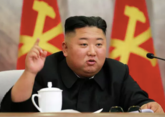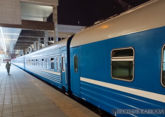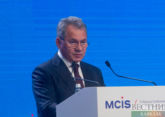U.S. and North Korean negotiators haven’t agreed on a common definition of “denuclearization,” the lead State Department negotiator said. Washington Examiner reports in its article Top diplomat: US and North Korea have yet to agree on meaning of ‘denuclearization’ that Special Envoy Stephen Biegun told a Stanford University audience: “So we do not have a specific and agreed definition of what final, fully verified denuclearization or comprehensive, verifiable, irreversible denuclearization — whatever your preferred term of art — is. We do have a well-developed view inside the United States of America on what this entails, but that’s something that over time you’ll also have to come to agreement with the North Koreans on.”
Biegun’s acknowledgment makes explicit the divergence that remains between the two sides with a second meeting between President Trump and dictator Kim Jong Un just weeks away. He sought to forestall cynicism about the negotiations, touting conciliatory gestures that have taken place while emphasizing the gravity of the threat that remains.
“Much has transpired in just the past month, and much has yet to happen,” Biegun said during a question-and-answer session. “I think it’s fair to say that we have more work ahead of us than we do behind us.”
The top negotiator’s remarks — a rare and extensive public status update on the talks — took place just days after the president’s top intelligence advisers offered a dubious assessment of North Korea’s posture.
“The [intelligence community] continues to assess that it is unlikely to give up all of its WMD stockpiles, delivery systems, and production capabilities,” Dan Coats, the director of national intelligence, told his Senate overseers on Tuesday. “North Korean leaders view nuclear arms as critical to regime survival.”
Those comments led to a high-profile retort from the president — “I disagree with certain things that they said,” he told reporters — followed by a reconciliation rooted in the premise on media criticism.
“Their testimony was distorted press," Trump tweeted Thursday. “A false narrative is so bad for our Country. I value our intelligence community. Happily, we had a very good meeting, and we are all on the same page!”
Biegun also expressed frustration with the controversy, as he said “we all know” that “North Korea has given us little indication” it will hand over its nuclear arsenal.
"If I were presenting this same information, I would say that we have the potential here for a grave threat to the United States of America, and therefore it is all the more urgent that we engage diplomatically," he said. "So my frustration isn’t with the accuracy of the information. It’s how it’s presented and how it’s interpreted. You cannot divorce the intelligence information from policy. The intelligence information is critical as an underpinning for the policy, but the policy is to address the threat and that’s what my frustration was last week."
He cited a New Year’s speech by Kim, distributed as part of the regime propaganda that the North Korean people read, as evidence of a legitimate negotiating opportunity, however.
“[When] he declares not to us but to the people of North Korea that he has made the decision to denuclearize, that’s creating room for us to begin this discussion in a manner that gives us hope we can get to the goal we seek,” said Biegun. “When he says to his people that he is shifting the focus of his leadership to developing the economy of North Korea — that we can do together. That’s not an adversarial approach at all.”










